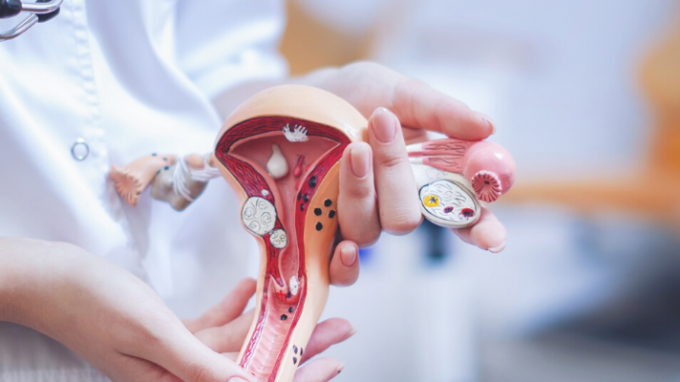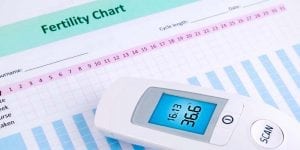If you are struggling to conceive, one of the first tests that a doctor may use to monitor your fertility is follicular monitoring. This ultrasound monitoring will help your doctor better understand how well you ovulate and increases your chances of conception with or without medical intervention.
What Are Follicles?
Follicles are the parts of your ovaries that contain eggs waiting to mature for ovulation. Follicles produce hormones that allow eggs to mature and be released for fertilization.
The Menstrual Cycle
Your menstrual cycle is split into three phases; the follicular phase, ovulation phase and the luteal phase. These phases are important for fertility and conception.
The time between the beginning of your period and your ovulation is the follicular phase. During this phase, eggs within your follicles will receive hormone signals to mature. Typically, only one egg will fully mature during this phase of your cycle. During the ovulation phase, around day 14 of your menstrual cycle, luteinizing hormone (or LH) will spike, signaling your body to release the mature egg. The luteal phase begins after ovulation. This is when progesterone spikes to prepare your uterus for implantation and pregnancy. During this time, the egg will enter your fallopian tubes where it can be fertilized and then make its way to the uterus, where it can be implanted. If implantation doesn’t occur, you start your period and the cycle starts over again.
What Is Follicular Monitoring?
 If women are having difficulty conceiving, follicular monitoring is a useful tool that will give your doctor an indication of your chances of fertility. During follicular monitoring, an ultrasound is used to monitor the ovary and follicles. Your doctor will be able to determine the quality of your eggs, how well they have matured and whether or not other conditions, such as PCOS, may interfere with the development and release of an egg.
If women are having difficulty conceiving, follicular monitoring is a useful tool that will give your doctor an indication of your chances of fertility. During follicular monitoring, an ultrasound is used to monitor the ovary and follicles. Your doctor will be able to determine the quality of your eggs, how well they have matured and whether or not other conditions, such as PCOS, may interfere with the development and release of an egg.
Why Is It Important?
In women who are attempting to conceive, combining the results of follicular monitoring with bloodwork can give an overview of a woman’s ability to produce viable eggs and conceive. It can also be used to check on the progress of medications used to stimulate ovulation.
After follicular monitoring, your doctor may adjust the dosage of medications or move forward on the current track. If you are at the beginning of an ovulation cycle, your doctor may suggest that you engage in intercourse or decide it is time to have intrauterine insemination or IUI. If you are trying to conceive a child via IVF or in-vitro fertilization, follicular monitoring can indicate when the eggs are mature and that it is time to retrieve and fertilize them.
Timing and Medication
If you are undergoing fertility treatment, it is important that your doctor monitors the effects of ovulation-stimulating medications and hormones on your body. This allows for the optimal chances of conceiving and the lowest risk of side effects from the medications being administered.
Timing
Sperm can survive in a woman’s body for up to five days, but the egg can only be fertilized in the first 24 hours after its release. Therefore, it is important that both intercourse and IUI be timed to meet the egg when the timing is optimal for fertilization.
Basal-body temperature tests can only tell you when ovulation has already occurred and identify fertility patterns for future months. Follicular monitoring, on the other hand, can let doctors know, in real-time, where you are in the ovulation process.
In women with irregular cycles or undergoing fertility treatment, this becomes exceptionally important because it gives the woman a better chance of conceiving since your most fertile days are the three days prior to ovulation and the day after.
If you undergo IVF, it is equally important to know when eggs are mature for retrieval. This way, your doctor has an idea of how many viable eggs you have and when they should be retrieved for your best chances of successful fertilization.
Medication
Women taking hormones to induce or improve the quality of eggs need follicular monitoring to ensure that the medication is at a dosage that is effective enough to produce quality eggs, but isn’t too high, which increases the risk of complications.
Excessive medication can also allow a woman to produce multiple healthy eggs in a single cycle, increasing the chance she will conceive multiples. This increases her health risks during pregnancy and needs to be avoided.
An Effective Tool
Follicular monitoring is a painless non-surgical procedure that can help you conceive a child more quickly and with the lowest risk to your health. It can give your doctor a better understanding of your menstrual cycle and determine what may work best to help you safely and effectively conceive a child.





